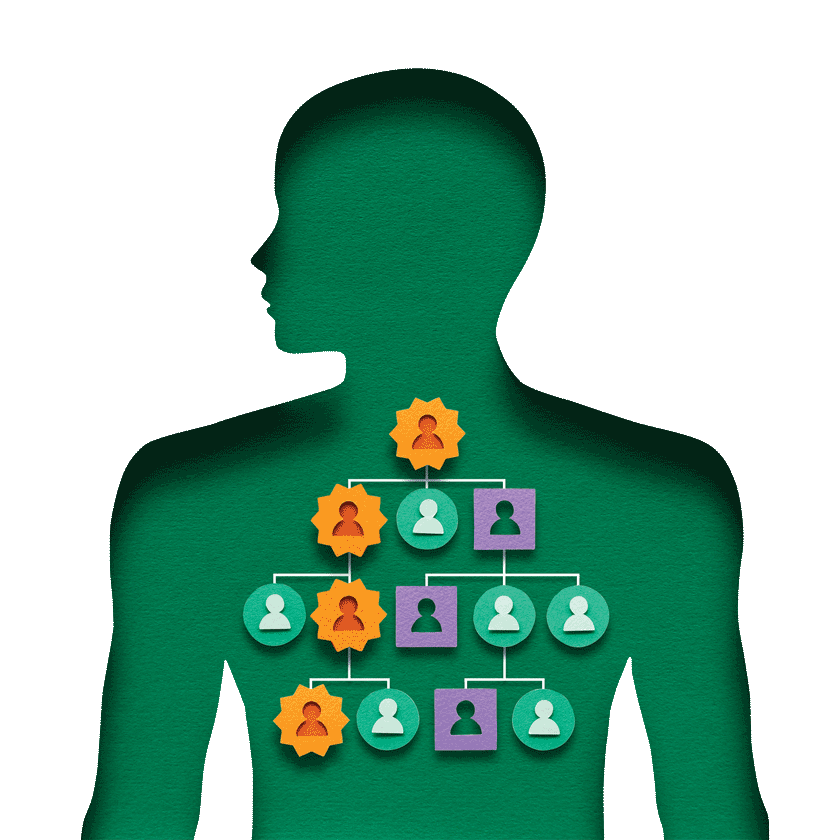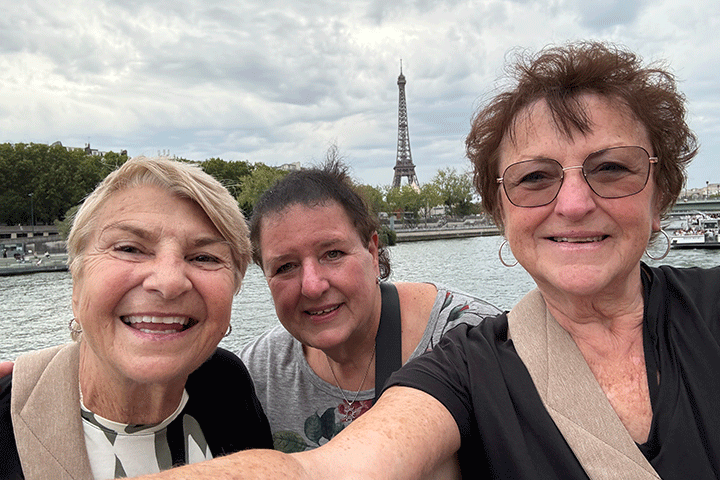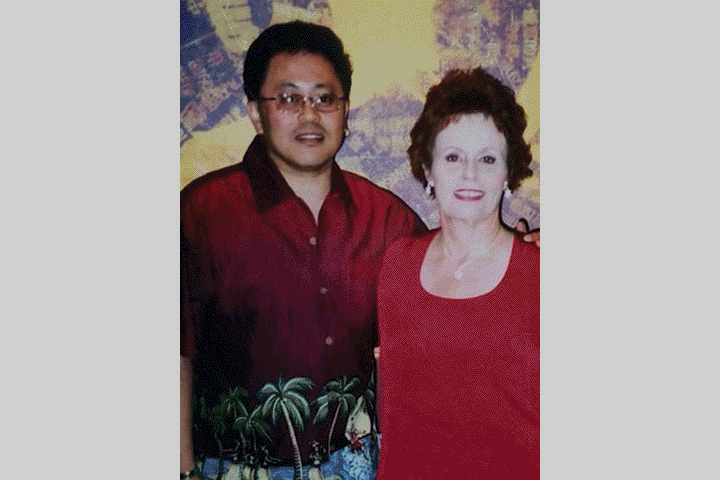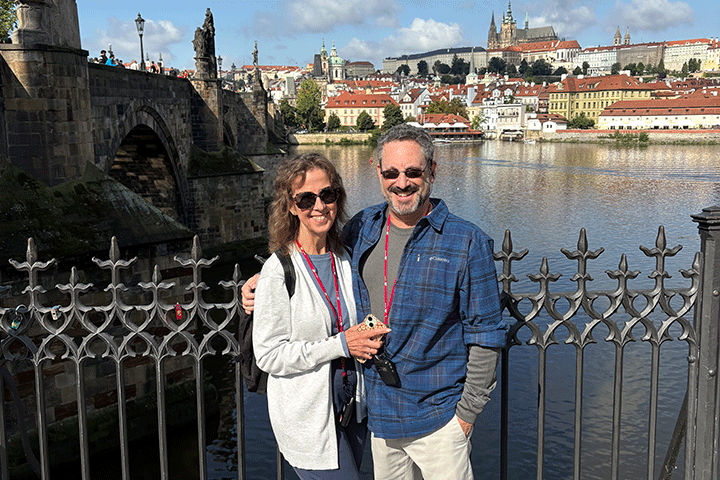Genetic Testing Changed My Chemo Protocol
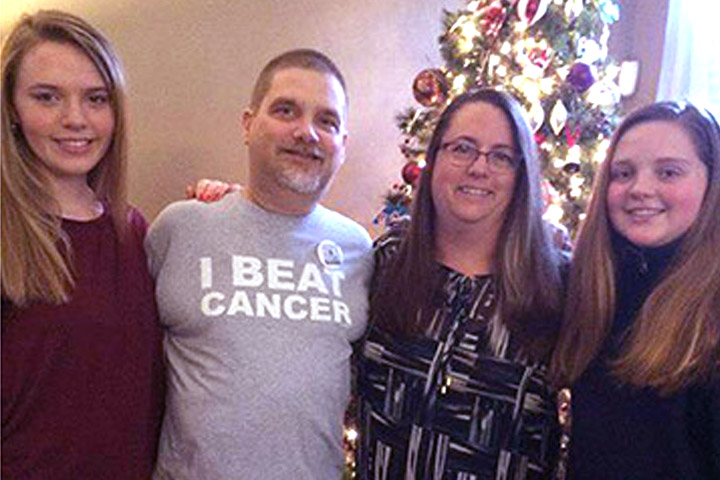
- Pain leads to pancreatic and duodenal cancer diagnosis
- Whipple procedure
- Second opinion before chemo includes genetic testing
- Lynch syndrome finding changes chemo protocol
- Other cancers related to Lynch
In the spring of 2015 I started having pain in my upper left abdominal region and suffered from constant nausea.
The pain eventually spread throughout my back and to the area where my liver resides. My doctor ordered blood tests, a CT scan, a PET scan, an endoscopy, and even a colonoscopy. It turned out that I had stage III pancreatic and duodenal cancer.
Recovery: A Constant Balancing Act
The plan was to have surgery first and then chemo. On June 23, 2015, I had Whipple surgery at Piedmont Hospital in Atlanta, Georgia. My surgeon was Dr. Kevin Nguyen. It was an eight-and-a-half-hour surgery and I stayed in the hospital for more than two weeks.
The surgery went well, but my recovery was complicated. My immune system was already compromised due to a kidney transplant that I had in July 1999. The post-surgery medications raised my creatinine and BUN numbers (blood, urea, and nitrogen—a measure of kidney health). It felt like a never-ending balancing act.
Also because of my weakened immune system, I developed post-surgical infections at the wound site. At one point, I needed a second operation to reopen my wound and clean it out.
Getting the Right Chemo Protocol
In August 2015, I traveled to MD Anderson (MDA) in Houston, Texas, for a second opinion on my chemo treatment. Dr. Michael Overman also ordered genetic testing. I have an extensive history of cancer in my family. My father and my paternal grandmother both died of cancer. My father had duodenal and colon cancer and my grandmother died of colon and stomach cancer. My genetic tests showed that I have Lynch syndrome, the most common form of hereditary colorectal cancer. Lynch also increases your risk for pancreatic cancer.
I was also diagnosed with Muir-Torre syndrome, a variant of Lynch syndrome that includes a predisposition for certain skin tumors. I have had many skin cancers over the years even before my pancreatic cancer diagnosis. I always suspected that I had Muir-Torre syndrome, but MDA’s genetic testing made it official.
The discovery of Lynch syndrome ended up changing my chemo protocol. Dr. Overman worked with my Atlanta-based oncologist, Dr. Ha Tran at Piedmont Cancer Institute, and together we agreed on a chemo combination called XELOX—capecitabine and oxaliplatin.
Navigating Chemo’s Side Effects
I started my chemo regimen on September 11, 2015. The protocol was to receive chemo intravenously every three weeks and take oral chemo in between. I developed pain, neuropathy, and nausea during treatment, all of which have unfortunately continued to this day.
The tingling and nerve pain is particularly difficult. I remember trying to grab a jar of pickles from the refrigerator during the early days of my chemo treatment. I dropped it immediately because it was too cold for me to handle! My neuropathy is ongoing in my legs. It gets worse during the winter and sometimes leaves me with so much nerve pain that I have to stay underneath a heated blanket. Even though there are days that I cannot get out of bed, I do have many good days, too.
A New Cancer
I was doing quite well after beating pancreatic cancer, but then I was diagnosed with stomach cancer in 2016. My entire stomach and part of my esophagus had to be removed. All of the treatments and surgeries began taking a toll on my body. I have daily abdominal, back, and esophagus pain. I have no real food restrictions, but the constant nausea and pain forced me to adjust my entire way of eating. It’s still a problem to this day. I can eat a nice Italian meal one night without any side effects and the next night I will suffer from excruciating pain and vomiting.
Surviving Despite All
Despite all the cancers I am still alive! Each type of cancer is graded on a five-year survival rate. With pancreatic cancer, the stats were (at best) gloomy. I knew the horrible odds around this awful pancreatic cancer going into it, so it was important for me to set short-term goals in addition to long-term goals
My twin daughters were starting high school the same year I was diagnosed. My BIG goal was to survive long enough to see them graduate. I was able to meet that goal but ironically, their graduation took place during the quarantine in 2020 so there were no normal graduation activities anyway! The school arranged a modified graduation ceremony a few months later, which was a VERY emotional moment for me and the rest of the family.
I continue to see oncologist Dr. Amelia Zelnak at Atlanta Cancer Care, for ongoing monitoring. So far, so good. Overall, the surgery and treatment have given me more time with my family and have helped me reprioritize my life. Notably, I have developed a stronger relationship with God.
This journey has also compelled me to spend more time volunteering than I did in the past. I volunteer with Purple Pansies, a pancreatic cancer organization in my hometown of Cumming, Georgia (a northern suburb of Atlanta).
I was diagnosed at age 45 and I am now 54 years old. Despite the many obstacles that I have had to face, I am living a wonderful life.



